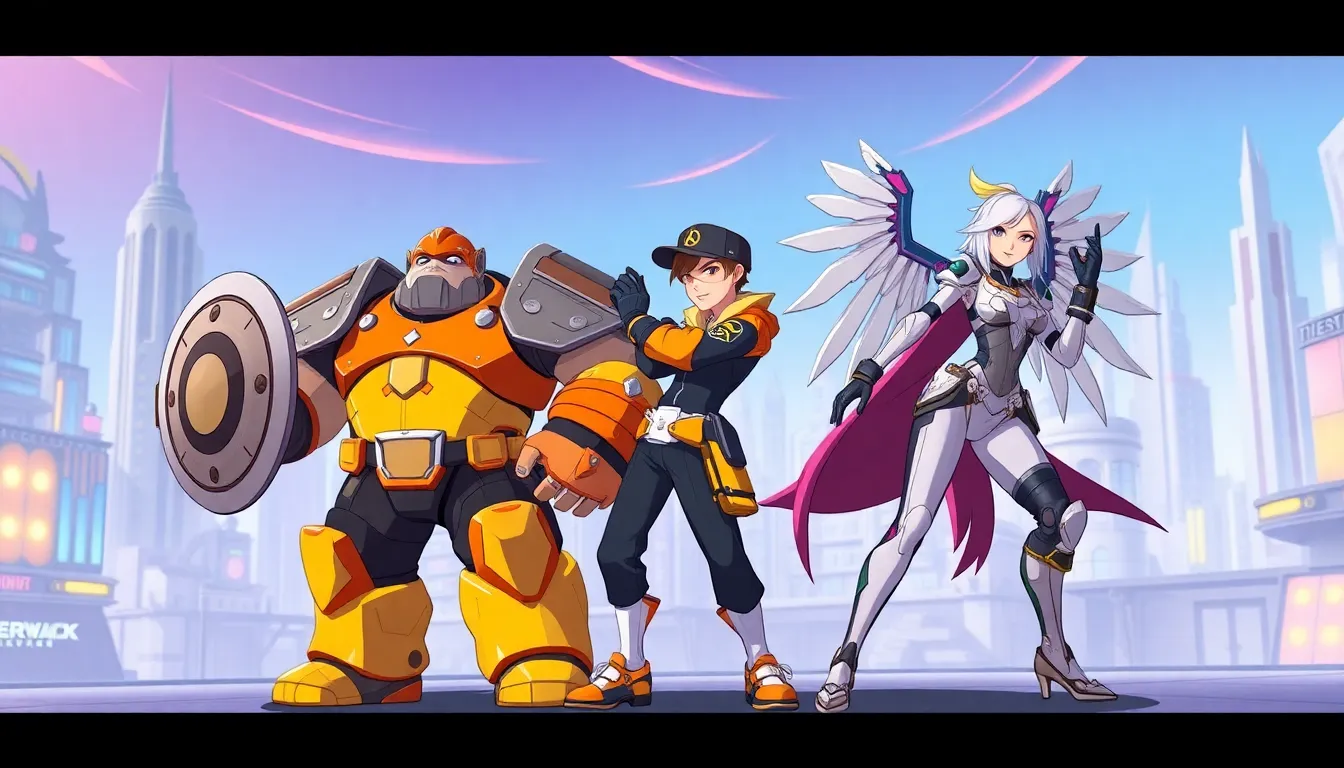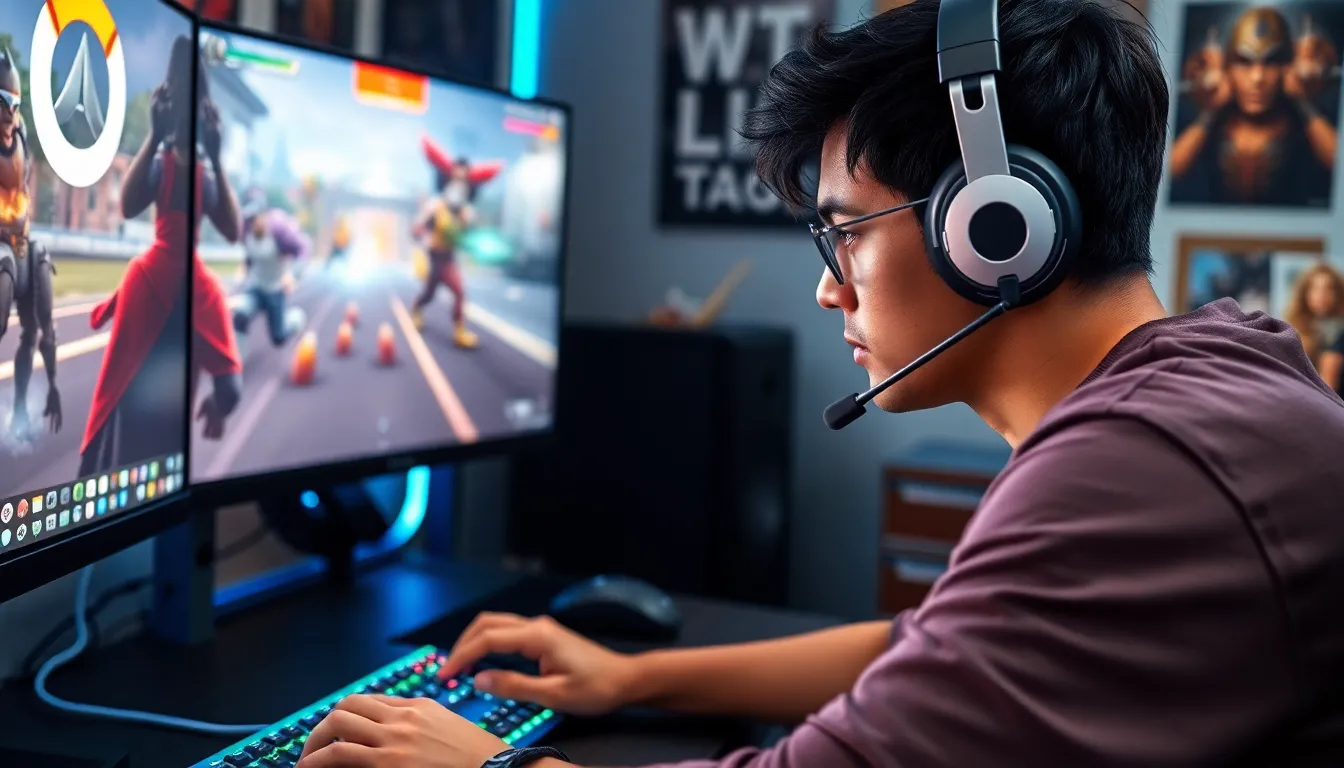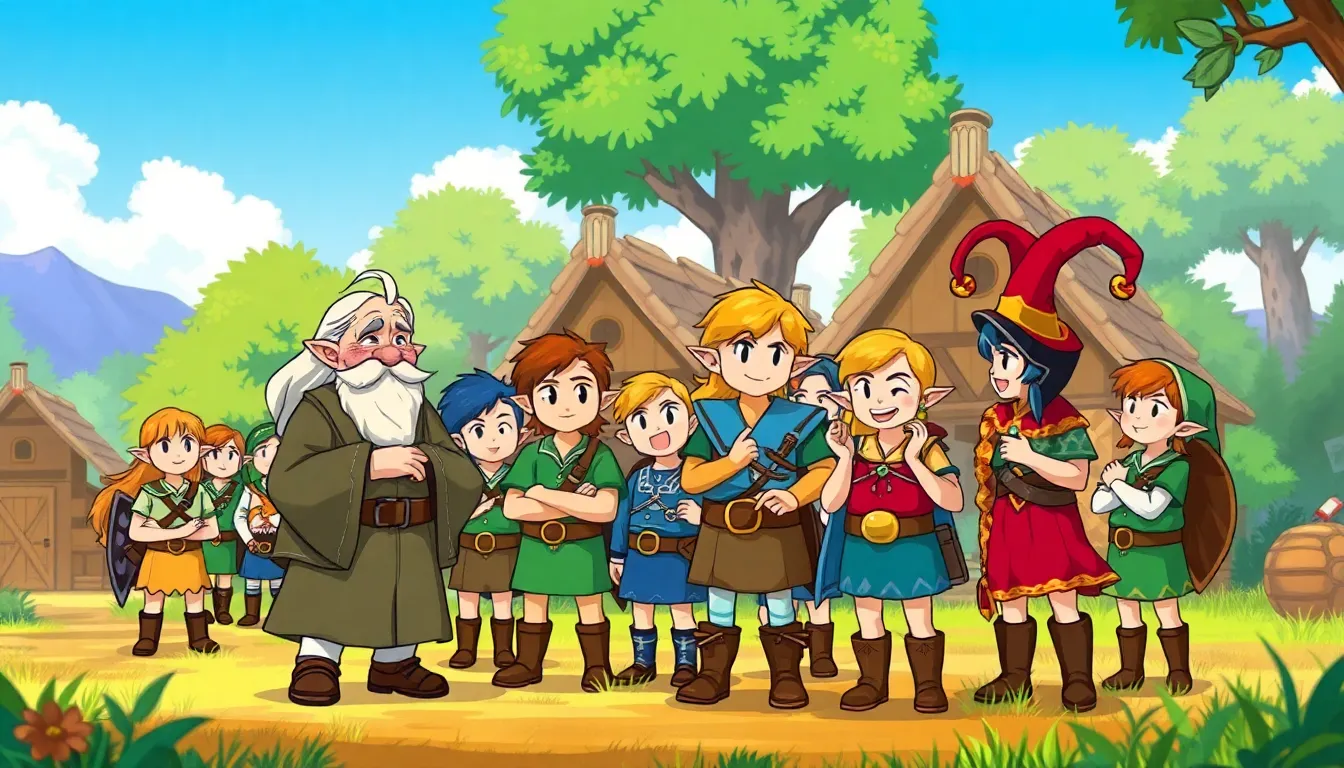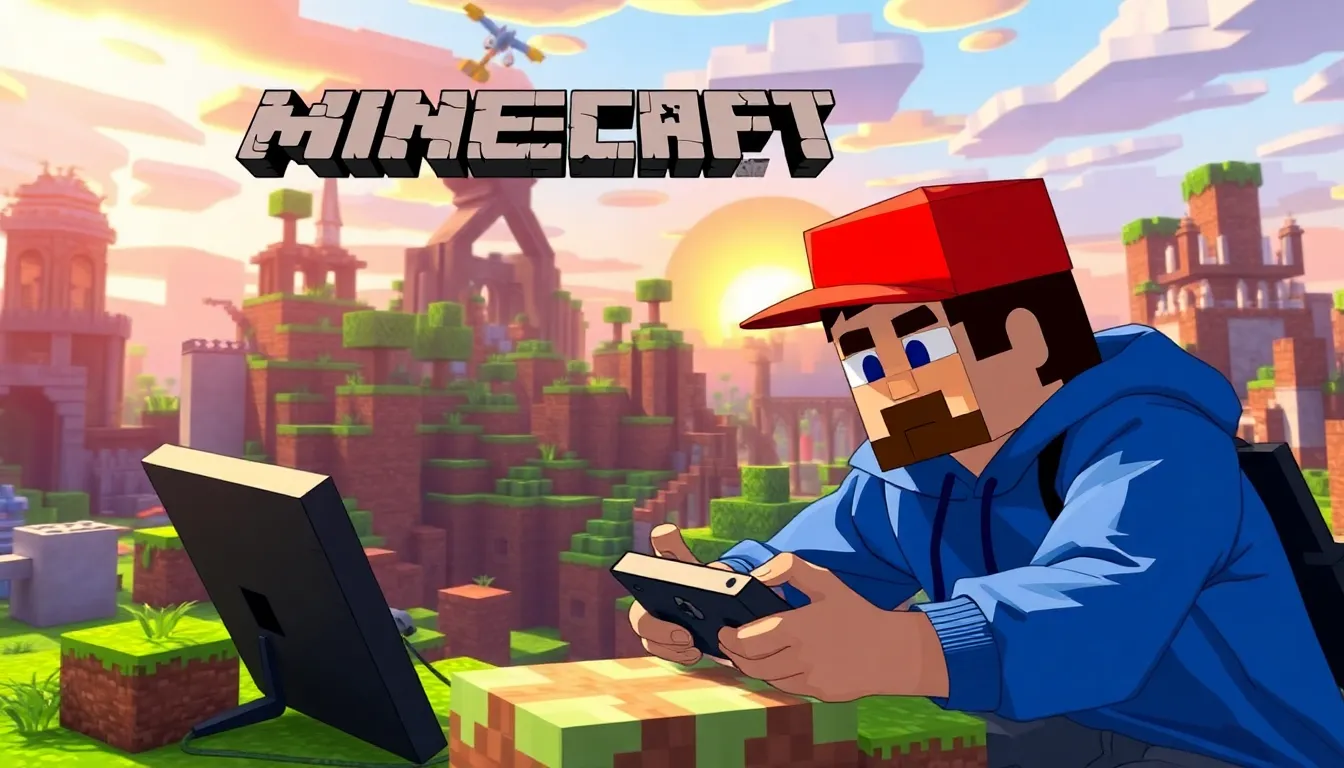Jumping into the vibrant world of Overwatch can feel like diving into a pool of chaos—exciting yet overwhelming. With a roster brimming with colorful heroes and a dizzying array of abilities, new players might find themselves wondering if they’ve accidentally entered a circus instead of a shooter. Fear not! With the right tips, anyone can go from zero to hero faster than Tracer can blink around the map.
Table of Contents
ToggleUnderstanding Overwatch Basics
Mastering Overwatch requires understanding fundamental elements like game objectives and character roles. New players must grasp these components to navigate the battlefield effectively.
Game Objectives
Game objectives form the foundation of Overwatch gameplay. In each match, teams aim to either capture points or escort payloads. Capture points involve controlling specified areas, whereas escorting payloads requires players to move a vehicle to a designated location. Knowing the specifics of King of the Hill matches ensures players understand the need for area domination. Additionally, familiarizing with game modes like Capture the Flag introduces strategic depth. Each objective dictates team strategies and character selections, highlighting the importance of working together.
Character Roles
Character roles play a crucial part in Overwatch’s structure. Each hero falls into one of three categories: Damage, Support, or Tank. Damage heroes focus on eliminating opponents, driving the offense. Support heroes provide healing and buffs to allies, enhancing team sustainability. Tanks absorb damage and create space, often leading the charge into enemy lines. Choosing the right role helps determine team dynamics and influences how players approach objectives. A balanced team with diverse roles often correlates with success, emphasizing the need for cooperation and strategic synergy.
Choosing the Right Hero

Selecting an appropriate hero enhances gameplay and team dynamics. Each hero serves a distinct role, impacting strategies and overall success.
Tank Heroes
Tank heroes absorb damage and protect teammates. They lead the charge by creating space and drawing enemy fire. Characters like Reinhardt and Winston excel in this role. Reinhardt uses a barrier shield for team protection, while Winston delivers mobility and crowd control. Choosing a tank ensures a solid frontline, allowing damage dealers and supports to perform effectively.
Damage Heroes
Damage heroes deliver high output and eliminate opponents. They prioritize offensive gameplay, often seeking out vulnerabilities in enemy defenses. Tracer and Reaper exemplify effective damage roles. Tracer’s speed enables quick engagements, while Reaper excels at close-range duels. Selecting a damage hero can change the course of a match, making tactical positioning essential.
Support Heroes
Support heroes facilitate team survival and efficiency. They provide healing and utility, ensuring teammates remain in fighting shape. Characters like Mercy and Zenyatta embody effective support. Mercy revives fallen allies, while Zenyatta provides damage boosts alongside healing. Choosing a support hero emphasizes teamwork and enhances team resilience during battles.
Communication and Teamwork
Effective communication and teamwork significantly enhance the Overwatch experience. Players should prioritize coordination with teammates to achieve victory.
Utilizing Voice Chat
Voice chat serves as a powerful tool in Overwatch. Communicating strategies and callouts in real time can make a substantial impact during matches. Players should share essential information about enemy positions or ultimate abilities without hesitation. Establishing a communication rhythm improves synchronization among team members. Not every player prefers voice chat, but utilizing it for key moments often leads to better teamwork and quicker responses. When players collaborate effectively, they increase their chances of winning.
Importance of Team Composition
Team composition plays a crucial role in determining the outcome of a match. Selecting a balanced mix of Damage, Support, and Tank heroes ensures versatility and adaptability. Depending on the game mode, combinations can shift, requiring players to adapt their strategies. For example, a well-rounded team might include a Tank like Reinhardt for protection and a Support hero like Mercy for healing. Teams lacking specific roles might struggle against well-composed opponents. By understanding team dynamics and adjusting hero selections accordingly, players maximize their overall effectiveness.
Mastering Gameplay Mechanics
Mastering gameplay mechanics proves essential for success in Overwatch. Beginners must focus on two key areas: movement and positioning, along with ability usage.
Movement and Positioning
Understanding movement and positioning forms the foundation for effective gameplay. Players should utilize cover to minimize exposure and maximize survivability. Constantly adjusting position helps maintain an advantageous angle on enemies. Staying aware of the surroundings enables swift adaptations during skirmishes. Prioritizing high ground often gives strategic superiority, influencing outcomes in engagements. Each character’s mobility varies, so mastering the movements of selected heroes enhances overall effectiveness. Lastly, practicing dodging enemy abilities adds an extra layer of defense, supporting team objectives.
Ability Usage
Effective ability usage can significantly impact matches. Players should familiarize themselves with their heroes’ unique abilities, understanding when to deploy each one for maximum effect. Timing impacts the success of offensive and defensive moves. Coordinated usage of ultimates with team members creates powerful synergies, leading to successful team fights. Recognizing cooldowns ensures abilities are available when needed. Prioritization must align with the team’s strategy, whether healing, crowd control, or dealing damage. Additionally, strategic positioning while activating abilities often results in winning engagements.
Learning from Experience
Learning from gameplay experiences enhances Overwatch skills. Players should focus on analyzing their performance and identifying areas for improvement.
Analyzing Gameplay
Reviewing gameplay can provide valuable insights. Players can record their matches and watch them later, noting specific moments that impacted their performance. Observing decision-making processes during key engagements fosters a better understanding of strategies. Identifying mistakes helps players avoid repeating them in future games. Players can also seek feedback from peers or utilize community forums to gain different perspectives. Focus on both individual actions and team dynamics to see the bigger picture.
Watching Professional Players
Watching professional players represents a powerful learning tool. High-level gameplay showcases advanced strategies and character techniques. Following pro matches can inspire players and expose them to new hero compositions. Observing positioning and decision-making during crucial moments aids in skill development. Players should focus on how pros communicate and coordinate with their teams. Additionally, studying their ability usage timing can lead to improved individual performance. Engaging with professional streams or highlight reels provides an accessible way to learn from the best.
Starting the journey in Overwatch can feel overwhelming but with the right approach, players can quickly elevate their gameplay. By focusing on team dynamics and understanding hero roles, new players can find their niche and contribute effectively. Communication and teamwork are paramount; coordinating strategies with teammates often leads to victory.
Mastering gameplay mechanics and learning from each match will foster continuous improvement. Players should embrace the learning process, utilizing resources like recordings and professional matches to refine their skills. With dedication and practice, anyone can thrive in Overwatch and enjoy the exhilarating experience it offers.



